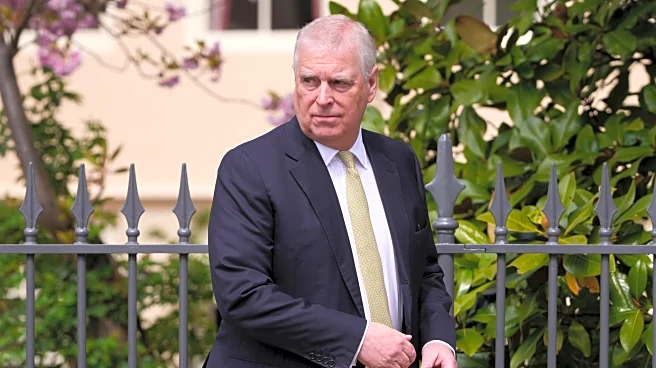Rapid Read • 7 min read
Vladimir Plahotniuc, a fugitive oligarch from Moldova, has been detained in Greece on charges related to a $1 billion bank fraud. Plahotniuc fled Moldova in 2019 amid corruption charges, including his alleged involvement in a scheme that led to the disappearance of $1 billion from a Moldovan bank in 2014. This amount represented about one-eighth of Moldova's annual GDP at the time. Plahotniuc has consistently denied any wrongdoing. The Moldovan national police confirmed his detention, which was facilitated by Interpol's office in Athens. Plahotniuc was placed on Interpol's international wanted list in February. The Greek police unit focused on organized crime is pursuing Plahotniuc for suspected participation in a criminal organization, fraud, and money laundering. Moldova's Ministry of Justice and Prosecutor’s Office are working on extradition procedures for Plahotniuc and another detainee.
AD
The arrest of Vladimir Plahotniuc is significant for Moldova's political landscape, especially ahead of the upcoming parliamentary elections. Plahotniuc, a wealthy businessman and former politician, has been accused of manipulating Moldova's law enforcement to target rivals and interfere in elections. His detention could bolster the position of President Maia Sandu and her pro-European Union supporters, as Plahotniuc was involved in pro-Russian campaigns. The arrest may also impact Moldova's relations with the EU and Romania, as it aligns with efforts to combat corruption and promote democratic governance. Additionally, Plahotniuc's inclusion in U.S. and UK sanctions lists underscores the international dimension of his alleged activities.
Moldova is expected to pursue extradition proceedings to bring Plahotniuc back to face charges. The arrest may influence the September parliamentary elections, potentially reducing Russian influence through disinformation campaigns. The Moldovan government, along with its EU allies, will likely use this development to strengthen anti-corruption measures and promote transparency. The case may also lead to further scrutiny of Moldova's financial systems and political processes.
AD
More Stories You Might Enjoy











